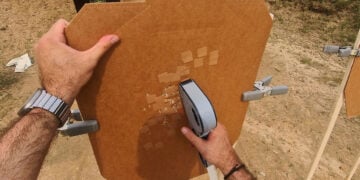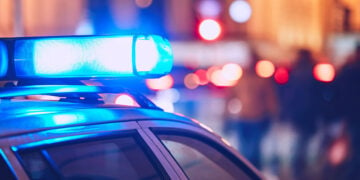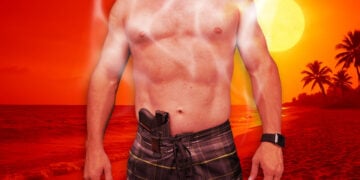
It seems that all too often these days’ cities are going bankrupt. In some cases, and to alleviate the pressure of bankruptcy, cities and small towns are cutting back budgets for public safety. Police and Fire Departments enduring the most of the cuts.
Naturally, the citizens of these cities and towns are having massive whine and jeez parties. After all, it is the responsibility of Government to protect them. Forbid that the everyday citizen should be able to protect him or her and the property that rightfully belongs to them.
What has this have to do with us everyday citizens who legally carry, transport, and/or have in their possession, a firearm for the purpose of hunting or defense of self? Plenty, I say!
Common sense dictates that a lack of police response will increase crime. If there is no law-enforcement agent available to stop you from doing nefarious acts, why worry? The bad people really like it when everyday citizens and their property are up for grabs because there is no police protection to sway them from their intended task like rob, rape, and murder if the opportunity to do so shows itself. The aftermath of Hurricane Katrina demonstrated the fact that (in most cases) local law enforcement is not enough to deter or stop looting and violence in the time of emergency.
The aftermath of the hurricane has featured prominent stories of citizens legitimately defending lives and property. New Orleans lies on the north side of the Mississippi River, and the city of Algiers is on the south. The Times-Picayune detailed how dozens of neighbors in one part of Algiers had formed a militia. After a car-jacking and an attack on a home by looters, the neighborhood recognized the need for a common defense; they shared firearms, took turns on patrol, and guarded the elderly. Although the initial looting had resulted in a gun battle, once the patrols began, the militia never had to fire a shot. Likewise, armed residents protected the Garden District of New Orleans, one of the city’s top tourist attractions.
At the orders of New Orleans Mayor Ray Nagin, the New Orleans Police, the National Guard, the Oklahoma National Guard, and U.S. Marshals began breaking into homes at gunpoint, confiscating lawfully owned firearms, and evicting the residents. “No one is allowed to be armed. We’re going to take all the guns,” says P. Edwin Compass III, the superintendent of police. We are seeing the truth lay bare before us: There is no shortage of ‘Government Employees’ (police officers and National Guardsmen) who will obey illegal orders to threaten peaceful citizens at gunpoint and confiscate their firearms.
One might state that the Governor of Louisiana not only trampled on the 2nd Amendment of the U.S. Constitution but that he also trampled on the Posse Comitatus Act of 1878. However, that statement would be untrue, as the Coast Guard and National Guard do not fall under the act. The Army and Air Force; however, do fall under the act. That is a separate issue, however.
The fact remains that, through apathy and complacency, the majority of the American populace relinquished their safety to the ‘powers that be’ rather than taking the full responsibility for their own welfare. You can say that most have given up their freedom to fend for themselves for the mirage of security provided by others. However, many are becoming aware that security built on the sands of civilization is shaky at best. In the early beginnings of this country, God and guns were essential. Although the firearm was used for putting food on the table and protection from predators (two and four-legged), the individual realized that he (or she) may be called upon to take up arms in defense of the village or to rise up in defense of the country that he (or she) had adopted. It was firmly believed, by many, that the Bible and not the pen of man, guaranteed the right to bear arms:
- If a thief breaks in at night and you kill him, you are not guilty of bloodshed. Exodus 22:2.
- God makes the weapons and for a purpose. Isaiah 54:16.
- The means of Gods protecting may include you and your weaponry to fight to stay alive. 2 Sam. 22:32-40.
- There is a time to fight, and a time to go to war. Eccl. 3:3, 8.
- We should be prepared, trained to fight (2 Sam. 32-40) and on the lookout (post a guard). Nehemiah 4:9.
- We are like sheep among wolves and we are to be wise as serpents. Matthew 10:16.
- Satan’s trap is to get people to believe “God will protect them”, so when God does not, they become mad at God and lose their faith. Jeremiah 37:8-9.
Most, if not all of these points, realized not only in the past, are still firmly ensconced in prudent people’s thinking today. One can see a parallel in the last bullet point of the Bible reference with reference to our Government; people became to believe in the Government for their protection, blame the Government when the protection is non-existent or lacking in power.
Although not referenced in the Bible, most believed that:
- It is not mandatory for all to have a weapon, only prudent.
- It is a God given right to protect yourself and your loved ones.
- The sword was the choice weapon in the days of Christ and is equal to a firearm today.
There are many who share the latter even today.
In these days of cutback of ‘essential’ public services like fire and police, I look at my own capabilities to fend for family and myself and to become as self-sufficient as possible. I installed smoke detectors and placed small medium and large fire extinguishers at strategic places about the home. I can grow my own vegetables but raising my own livestock for food is out of the question, as laws prevent me from doing so in the ‘burbs’. I secured my property the best that I can with what I have, and I have the means to protect it should the occasion arise. I have provisions for the long-term if need be, but continue to add to the store from the store. Some things are still out of reach for me like wind or solar power for the long term, but I am considering some things for the short term. However, I have no problem resorting to tools and knowledge of the past for survival, albeit it would be a strain on the family since their idea of ‘roughing it’ means a hammock on the balcony of a Marriot Hotel.
We should ask ourselves, “If the likelihood that cutting essential services like fire, police, and communication or when natural or manufactured (man-made) disasters occur, do I have the means to fend for my family and myself or do I rely on the Government to do that for me?”








